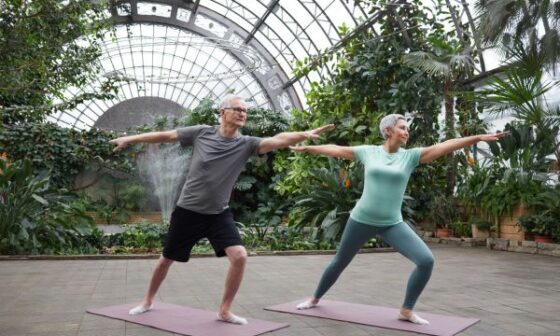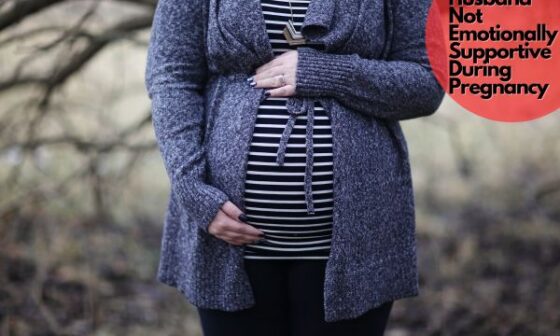Welcome to the mechanics of coupling two individuals in various contexts—a process often referred to as “Couples Matching.” Whether you’re exploring the dynamics of matchmaking in relationships, partnerships, or collaborations, this guide offers a streamlined overview of the underlying principles and strategies that bring two entities together.
People often ask “How does couples match work?”. Join us as we navigate through the intricate landscape of combining two entities into a cohesive unit. From identifying shared values to aligning long-term objectives, we’ll explore the factors that contribute to the success of a match. Whether you’re an individual seeking to build a meaningful relationship or an organization looking to forge strategic partnerships, this guide equips you with insights to make informed decisions.
How Does Couples Match Work
1. Traditional Dating: This involves meeting potential partners through social events, mutual friends, or online dating platforms. People get to know each other and assess compatibility over time.
2. Online Dating Apps: There are numerous dating apps and websites that use algorithms and user preferences to suggest potential matches based on factors like interests, location, and relationship goals.
3. Matchmaking Services: Professional matchmakers help individuals find compatible partners based on a range of factors, including personality traits, values, and lifestyle.
4. Social Circles: Many relationships develop within existing social circles, such as at school, work, or community groups.
5. Arranged Marriages: In some cultures and communities, families play a role in selecting partners for individuals.
6. Speed Dating: This involves meeting a large number of potential partners in a short time, usually a few minutes per person, to see if there is mutual interest.
7. Friend Setups: Friends might introduce two individuals they believe would be a good match.
Events and Activities: Participating in shared activities, clubs, or events can lead to meeting like-minded individuals.
8. Networking Apps: Some apps are designed to help people make professional connections, but they can also be used for finding potential romantic partners.
9. Interest-based Groups: Joining groups or communities centered around a specific interest can lead to meeting people who share your passions.
The process of matching two people together can vary widely based on cultural norms, personal preferences, and the specific approach being used. It’s important to communicate openly and honestly with potential partners and to be respectful of each other’s boundaries and desires.
The Role of Professional Matchmakers
In the quest for love and meaningful relationships, many individuals turn to professional matchmakers to assist them in finding compatible partners. Professional matchmakers play a crucial role in helping people navigate the complex world of dating and relationships. Here’s a closer look at their role and the value they bring to the process:
1. Understanding Clients: Professional matchmakers begin by conducting in-depth interviews and assessments with their clients. They take the time to understand their clients’ personalities, interests, values, and relationship goals. This understanding is the foundation for making successful matches.
2. Tailoring Matches: Armed with a comprehensive understanding of their clients, matchmakers tailor their matchmaking efforts to align with their clients’ preferences. They aim to create matches that have a high likelihood of success, both in terms of compatibility and long-term potential.
3. Curating Potential Partners: Matchmakers maintain extensive databases of potential matches. They carefully screen and vet potential partners, often conducting background checks to ensure the safety and authenticity of the matches they propose.
4. Facilitating Connections: Matchmakers take an active role in facilitating introductions and connections between their clients and potential matches. They organize meetings and provide guidance on how to make the most of these interactions. This proactive approach can help clients overcome the initial awkwardness of dating.
5. Relationship Coaching: Beyond matchmaking, many professional matchmakers offer relationship coaching services. They provide advice on dating etiquette, effective communication, and conflict resolution. This coaching can help clients build and maintain healthy, lasting relationships.
6. Feedback and Adaptation: Matchmakers actively seek feedback from their clients after dates and interactions. This feedback loop is invaluable in refining their matchmaking strategies and improving the quality of future matches. It’s an iterative process aimed at enhancing success rates.
7. Navigating Cultural Sensitivities: Matchmakers often work with clients from diverse cultural backgrounds. They must be attuned to cultural norms and sensitivities and adapt their matchmaking approaches accordingly. This inclusivity ensures that the matches are culturally compatible.
8. Privacy and Confidentiality: Maintaining client privacy and confidentiality is paramount for professional matchmakers. Clients trust them with sensitive information, and matchmakers must handle it responsibly and discreetly.
9. Post-Match Support: Matchmaking doesn’t end with a successful match. Matchmakers offer guidance on what comes next, including how to transition to more serious stages of a relationship. They celebrate successes with their clients and provide ongoing encouragement.
10. Measuring Success: Success in matchmaking isn’t solely defined by finding a partner. Professional matchmakers often measure success by tracking long-term relationship outcomes, client satisfaction, and feedback. They take pride in helping clients find happiness and fulfillment.
Conclusion
The Couples Match provides a valuable opportunity for medical professionals in committed relationships to train together and maintain their personal connections while pursuing their careers. While it presents unique challenges, careful planning, effective communication, and a willingness to adapt can lead to a successful Couples Match experience.
FAQs
1. Can couples match in any specialty? Yes, couples can participate in the Couples Match for most specialties. However, some highly competitive specialties may offer fewer opportunities for couples to match together due to limited positions.
2. Is it more challenging to match as a couple compared to an individual? Matching as a couple can present additional complexities, such as finding programs that accommodate both partners. However, with proper planning and communication, many couples successfully navigate the process.
3. Can couples match in different geographic locations? The primary goal of the Couples Match is to place couples in the same geographic area. However, in certain circumstances, couples may be placed in different locations if their preferences cannot be accommodated.
4. What happens if one partner matches but the other doesn’t? If one partner matches to a program and the other doesn’t, the couple may face a challenging decision. They can weigh the options of accepting the match and pursuing long-distance arrangements or participating in the Match again the following year.
5. Are there any disadvantages to participating in the Couples Match While the Couples Match offers numerous benefits, couples may have a limited number of program options, and compromises may need to be made. Additionally, the process requires thorough planning and effective communication.






